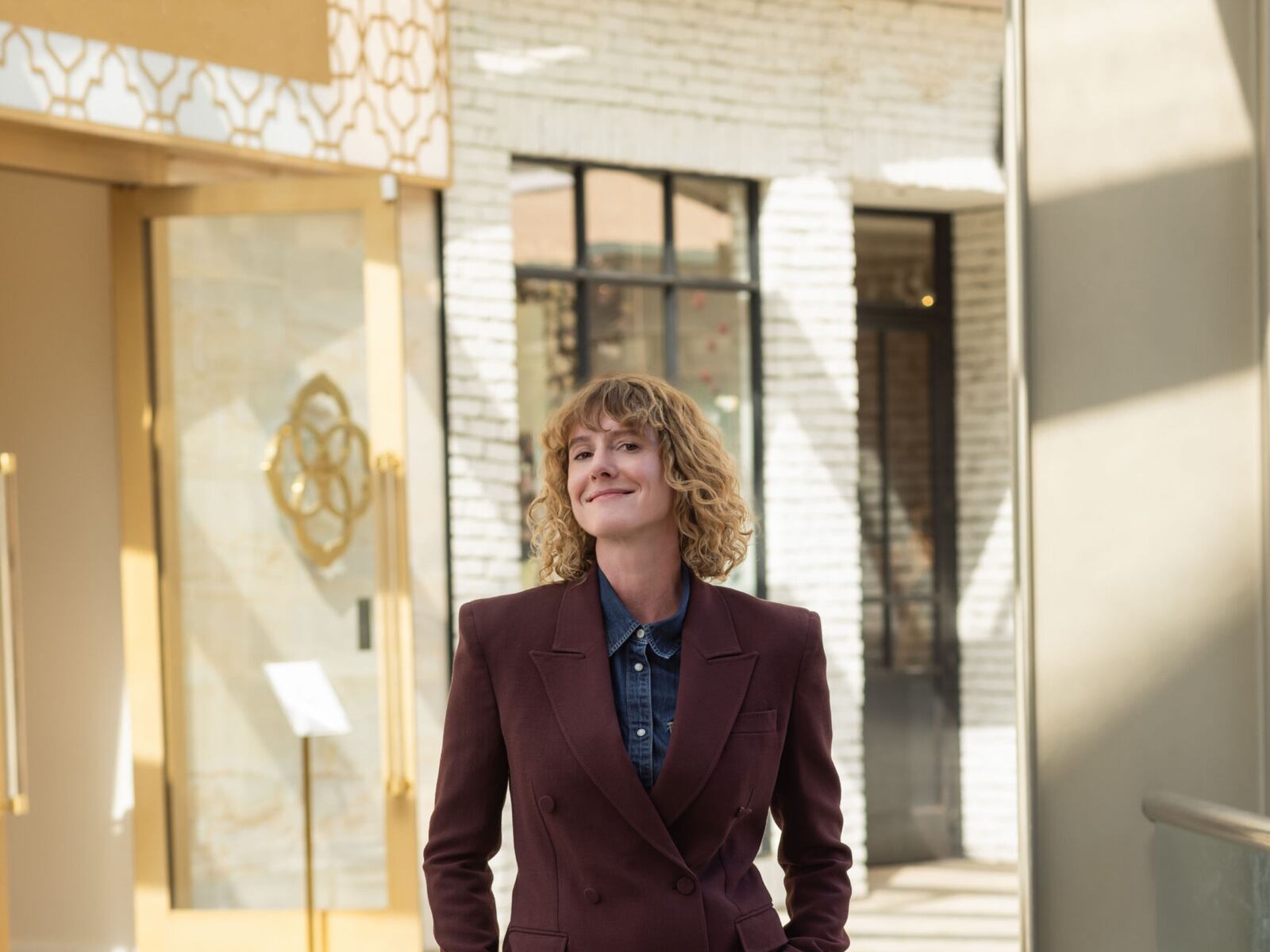Writer & Director
For a seventh-grade sweethearts dance, Jerusha Hess’s mom sewed her a pink taffeta dress with huge, puffy sleeves. Her date would blurt out a line on the dance floor that night that would later become one of the many meme-able quotes she wrote into “Napoleon Dynamite” — “I like your sleeves. They’re real big.”
“The Deb character was based on me,” Hess says of the cult classic film. “It feels like it’s just this bizarre movie, but it’s actually stories from mine and [my husband] Jared’s childhoods.”
In all of the films she’s written, produced or directed — from “Napoleon Dynamite” to “Nacho Libre,” “Gentlemen Broncos,” “Austenland” and more — Hess spotlights sincere characters that are believable in all their outrageousness. By engaging in a constant state of observation and curiosity about the world around her, Hess never runs short of creative inspiration.
Most recently, Hess co-directed the poignant and emotional animated short film “Ninety-Five Senses,” which was nominated for an Academy Award earlier this year. The experience has inspired Hess to explore more opportunities in animation as a new avenue for telling stories about her signature quirky, oddball characters.
“It was such a joyful little project, and we didn’t expect anything. Then, lo and behold, it got into the Oscars,” Hess says. “It was a fun whirlwind of everyone in Hollywood saying, ‘Wow, we didn’t know the Hesses could feel so deeply.’”
Outside of her work in film, Hess is a passionate advocate for the special needs community. She and her husband dream of starting a film club for adults with disabilities to socialize and make high-quality movies of their own.
Looking ahead, Hess is excited to start a production company with Jared and another friend in the producorial space. She is also dedicated to mentoring the next generation of filmmakers, whether it’s by stepping in as a guest lecturer at her alma mater, Brigham Young University, or getting involved in writer’s retreats. She especially loves mentoring young women in the early stages of their film careers.
“It’s very tricky to be a woman and a filmmaker,” Hess says. “Whether it’s for children or parents or nieces or friends, we take on this caregiver role. … It is tricky to balance those responsibilities with a career that is very demanding and not typical in its scheduling. It is so satisfying to help this new generation and say, ‘Hey, you can do it, and your stories are worthy of being told.’” To Main Page


